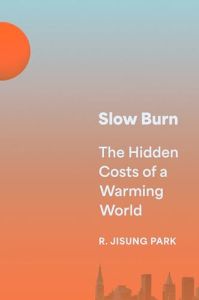
Slow Burn
The Hidden Costs of a Warming World
Recommendation
Thinking “statistically” — rather than relying on apocalyptic headlines, personal experience, or intuition — is vital if humanity wants to mitigate the harms of climate change, economist R. Jisung Park writes. There are many subtle ways that a slowly warming planet affects social and economic well-being, including reduced learning outcomes, lower productivity, and exacerbated socioeconomic inequity. Problem-solvers and policymakers must consider these less catastrophic “hidden costs” and seek locally focused solutions that allow people to adapt to a slowly warming planet.
Summary
About the Author
R. Jisung Park is a labor and environmental economist, and an assistant professor at the University of Pennsylvania. He has also worked as a Harvard postdoctoral fellow and a UCLA faculty member.









Comment on this summary